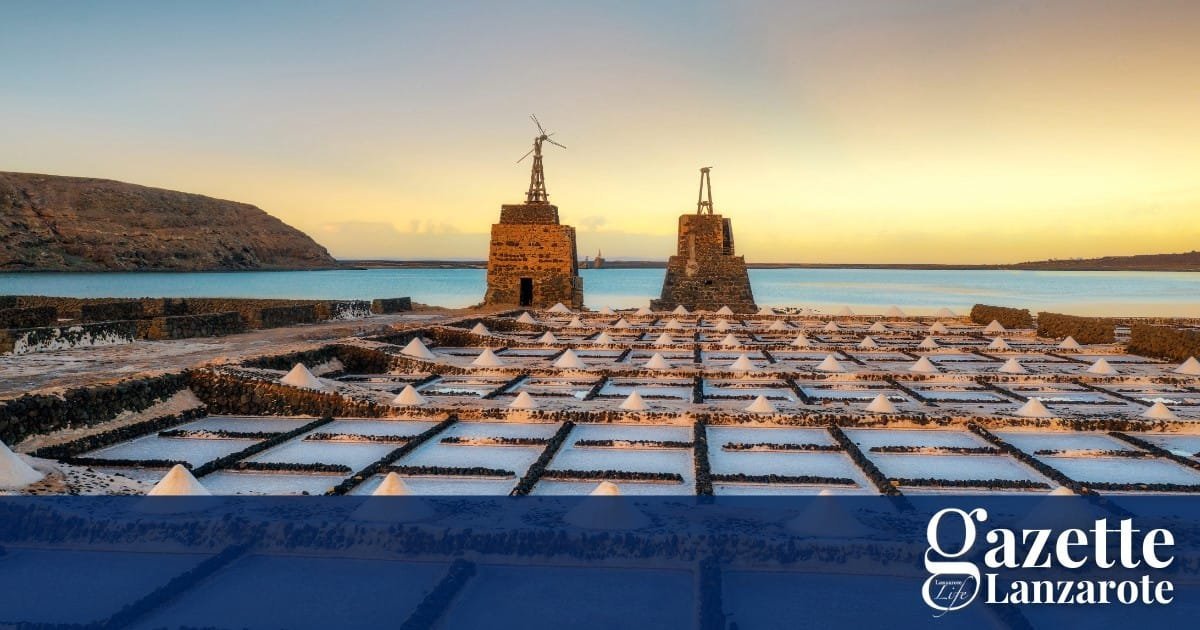

Local company, Salinas de Janubio, is celebrating winning two awards for their salt at the Agrocanarias 2024 competition that was recently held in La Palma.
Salinas de Janubio was awarded with the Gran Medalla de Oro (Grand Gold Medal) in the “Virgin Sea Salt” category and a Medalla de Oro (Gold Medal) in the “Flor de Sal” category.
The company explained that the awards “not only reflect Salinas de Janubio’s dedication to maintaining traditional artisanal production methods, but also its ability to innovate and adapt to the demands of the modern market with unique products that embody the cultural and landscape richness of Lanzarote.”.
Manager, Carlos Padrón, added “This recognition is a testimony to the effort and dedication of our entire team, from the salt makers to those who make it possible for our products to reach the world.”.
Buy the award winning salt here: https://www.salinasdejanubio.com/nuestra-sal/
Lanzarote’s Salt History
Salt has always been made on Lanzarote, and was once one of the island’s main products, vital for the island’s fish-preserving industry. There are 26 salinas (saltworks) on the island, although almost all of them are long disused. The exceptions are the famous Salinas de Janubio, which produces most of the local salt nowadays, and the Salinas de Guatiza, near Los Cocoteros, which produces a much smaller amount.
In both places, windmills are used to pump sea water into a series of flat beds and the moisture evaporated until the water is increasingly salty and crystals begin to form. At some stages of the process, the salty water can appear pink, a result of tiny crustaceans that live in the salt beds. The landscapes of the salinas are almost as strange and beautiful as the island’s unique wine country.
Two main types of salt are produced locally. First, there’s the coarse sea salt that can be seen drying in brilliant white conical heaps at the salinas. As the heaps dry in the sun, a crust of fine salt flakes forms on the outside, which is removed and sold as flor de sal. This is the real gourmet salt, milder in flavour and delicate in appearance, and its price reflects its prestige.
Sea salt is used widely for all sorts of purposes on Lanzarote. It’s perfect for curing, brining and pickling; it adds that frosted salty coating to the wrinkled potatoes that are a delicious Canarian speciality, and it is so cheap and plentiful that it is also frequently used to bake fish in a salt crust.
Janubio also sells a range of salts that are flavoured with red and green mojo, turmeric, curry, spices and herbs, as well as a black salt blended with active charcoal.
Salt is such a part of the island’s heritage that it is also used to decorate the streets on the religious festival of Corpus christi. Local groups create “carpets” of dyed salt, which exist for a few hours before being trampled.



